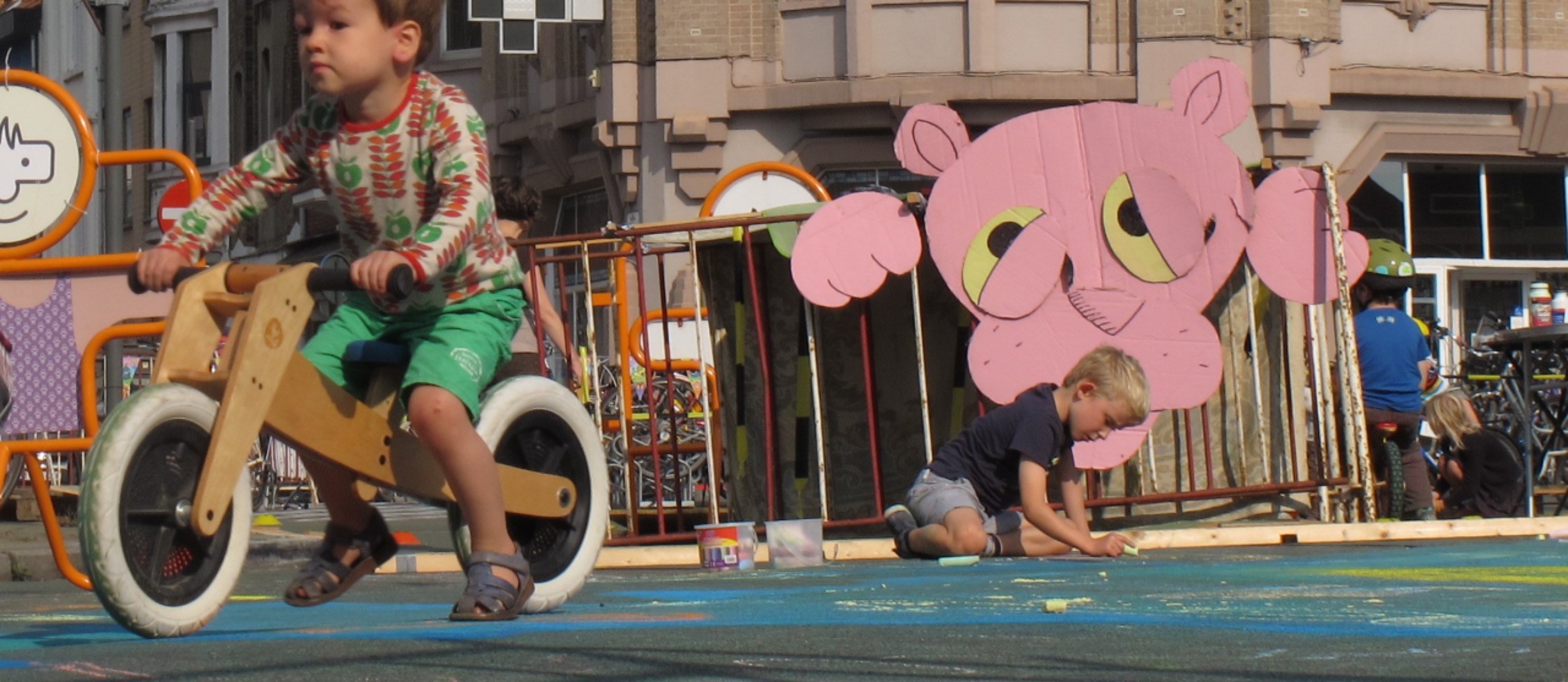The planning of child-friendly urban spaces represents a challenging interdisciplinary task for all those who collaborate spatially, educationally or socially on the future city. The involvement of children and teenagers in these processes is seen more than ever as a prerequisite for achieving a liveable and sustainable urban environment. This involvement is not limited to the role of informant and/or participant in a planning process, but requires an openness and task of recognising children and teenagers as co-researchers and planners of the city of tomorrow.
In the KIDS research project, a team of social workers and landscape architects set up a research and learning process around the meaning of child-friendly urban spaces and their design implications. Four lines of research were elaborated in parallel, involving children as co-researchers as much as possible:
- a literature and source research in collaboration with European partners resulting in an internationally publishable state of the art on the theme
- a policy reflection process based on a designing Delphi study
- a designing research learning process by means of pilot projects in four Ghent neighbourhoods
- development process of a research and reflection tool.
The research results have been translated into the KIDS-GIDS. This tool combines social, pedagogical and spatial insights into an innovative thinking and canvas and thus aims to contribute to an interdisciplinary view and approach to child-friendliness. In this guide, a child-friendly city stands for a city that involves children and teenagers in thinking about and developing the city and urbanity of tomorrow. This book provides a set of useful tools that contribute to a stronger citizenship position of children and young people in (child-friendly) urban planning and change processes. These tools were developed and tested in the context of four different types of urban planning processes: urban renewal, urban education, urban development and urban transition. They help empower children and teenagers in the different phases of a planning process: looking and researching, exchanging and ordering, imagining and experimenting, testing and selecting, and intervening and presenting. In particular, KIDS-GIDS aims to encourage urban actors to take the urban citizenship of children and teenagers more consciously as a starting point in urban planning. Not just as an ethical starting point, but as a logical and practically feasible principle of sustainable and democratic urban planning.
Those interested in learning more about this topic and/or getting started with child-friendly policies and participatory planning themselves can call on the researchers' expertise.

KIDS
University of Minho (UMinho) – Research Centre CIEC, Portugal
Institute of City and Regional Development, Berlin University of Technology, Duitsland





